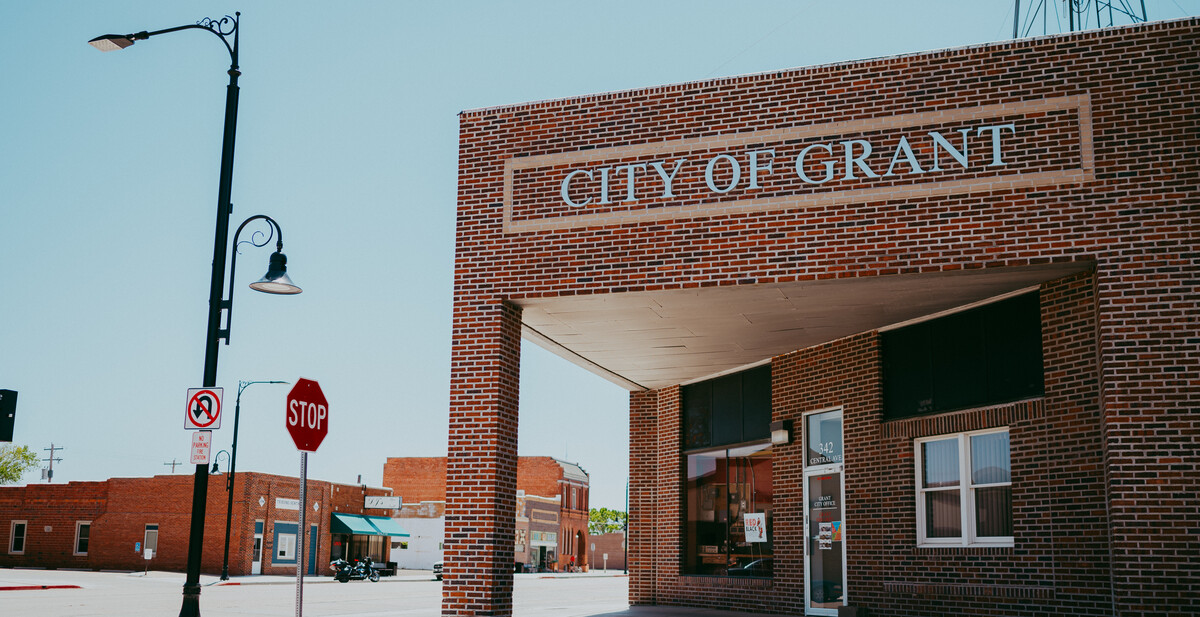Article 2 - Elected Officials
Article 2 – Elected Officials
SECTION 1-201: MAYOR AND COUNCIL; ELECTION
SECTION 1-202: MAYOR; POWERS AND DUTIES
SECTION 1-203: CITY COUNCIL; POWERS AND DUTIES
SECTION 1-204: city council; NUMBER AND QUALIFICATIONS
SECTION 1-205: CITY COUNCIL; PRESIDENT
SECTION 1-206: MAYOR; CITY COUNCIL; VACANCY
SECTION 1-207: CITY COUNCIL; VACANCY DUE TO UNEXCUSED ABSENCES
SECTION 1-208: CITY OFFICIALS; EDUCATION; REIMBURSEMENT
SECTION 1-209: RESTRICTIONS ON OTHER EMPLOYMENT OR ELECTIVE OFFICE
SECTION 1-201: MAYOR AND COUNCIL; ELECTION
All elected officers shall be nominated at the statewide primary election and elected at the statewide general election. They shall serve terms of four years or until their successors are elected and qualified. (Neb. Rev. Stat. §32-533) (Am. Ord. No. 386, 5/13/96)
SECTION 1-202: Mayor; POWERs and duties
A. The mayor of a city of the second class shall be elected in the manner provided in the Election Act. The mayor shall take office on the date of the first regular meeting of the City Council held in December following the statewide general election. The mayor shall be a resident and registered voter of the city and shall have the general and immediate control over all property and officials, whether elected or appointed, of the city.
B. The mayor shall preside at all meetings of the City Council and may vote when his or her vote would provide the additional vote required to attain the number of votes equal to a majority of the number of members elected to the City Council (quorum) on any pending matter, legislation, or transaction, and the mayor shall, for the purpose of such vote, be deemed to be a member of the council.
C. The mayor shall sign the city clerk's minutes of all meetings, all resolutions which have been passed and warrants for the payment of money when ordered by the City Council. The mayor’s veto powers shall be as provided in Section 1-405(C) herein.
D. The mayor, with the consent of the council, may appoint such officers as shall be required by ordinance or otherwise required by law. Their terms of office shall be as provided in Section 1-501. Such officers may be removed from office by the mayor. He or she shall, by and with the consent of the council, appoint such a number of regular police officers as may be necessary and may remove the same.
E. The mayor shall, from time to time, communicate to the City Council such information and recommend such measures as, in his or her opinion, may improve the finances, the police, health, security, ornament, comfort, and general prosperity of the city.
F. The mayor shall have the power, when he or she deems it necessary, to require any officer of the city to exhibit his or her accounts or other papers and to make reports to the council, in writing, touching any subject or matter pertaining to his or her office.
G. The mayor shall have such jurisdiction as may be vested in him or her by ordinance over all places within five miles of the corporate limits of the city for the enforcement of any health or quarantine ordinance and regulation thereof. He or she shall have jurisdiction in all matters vested in him or her by ordinance, excepting taxation, within one-half mile of the corporate limits of said city.
H. The mayor shall have power to remit fines and forfeitures and to grant reprieves and pardons for all offenses arising under the ordinances of the city.
I. The mayor shall have such other duties as the City Council may by resolution confer upon him or her or in any other matters which the laws of the State of Nebraska repose in him or her. (Neb. Rev. Stat. §§17-107, 17-110 through 17-114, 17-117) (Am. Ord. No. 16-01-01, 2/9/16)
SECTION 1-203: CITY COUNCIL; POWERS AND DUTIES
The governing body of the city shall be the City Council, which shall exercise all the powers which have been or may be authorized by law. The council shall have the power to make all such ordinances, bylaws, rules, regulations, and resolutions not inconsistent with the laws of the state, as may be expedient for maintaining the peace, good government, and welfare of the city and its trade, commerce, and manufactories, to enforce all ordinances by inflicting fines or penalties for the breach thereof, and to assess such taxes and fees as are necessary and appropriate. (Neb. Rev. Stat. §§17-505, 19-611) (Am. Ord. No. 386, 5/13/96)
SECTION 1-204: city council; NUMBER AND QUALIFICATIONS
A. The City Council shall consist of four residents of the city who are registered voters. All council members shall be nominated and elected on a nonpartisan ballot unless the city provides for a partisan ballot by ordinance. Terms of office shall begin on the first regular meeting of the council in December following the statewide general election.
B. Unless the city wishes to elect council members by wards as provided in Neb. Rev. Stat. §§17-102 and 32-553, members of the council shall be elected at large. (Neb. Rev. Stat. §§17-103, 17-104, 32-533, 32-553, 32-554, 32-557) (Am. Ord. No. 338, 4/11/89)
SECTION 1-205: CITY COUNCIL; PRESIDENT
The City Council shall elect one of its own body each year who shall be styled the president of the council and who shall preside at all meetings of the council in the absence of the mayor. In the absence of the mayor and the president, the council shall elect one of its own body to occupy his or her place temporarily, who shall be styled acting president of the council. Both the president of the council and the acting president, when occupying the position of the mayor, shall have the same privileges as the other members of the City Council and all acts of the president or acting president of the council, while so acting, shall be as binding upon the council and upon the city as if done by the elected mayor. (Neb. Rev. Stat. §§17-148, 19-617)
SECTION 1-206: MAYOR; CITY COUNCIL; VACANCY
A. In the case of any vacancy in the office of mayor or in case of his or her disability or absence, the president of the council shall exercise the office of mayor for the unexpired term, until such disability is removed, or in case of temporary absence, until the mayor returns. If the president of the council assumes the office of mayor for the unexpired term, there shall be a vacancy on the council, which shall be filled as provided in the following subsections.
B. Except as otherwise provided in subsection (D) or (E) of this section or subsection (A) above, vacancies in city elected offices shall be filled by the mayor and council for the balance of the unexpired term. Notice of a vacancy, except a vacancy resulting from the death of the incumbent, shall be in writing and presented to the council at a regular or special meeting and shall appear as a part of the minutes of such meeting. The council shall at once give public notice of the vacancy by causing to be published in a newspaper of general circulation within the city or by posting in three public places in the city the office vacated and the length of the unexpired term.
C. The mayor shall call a special meeting of the council or place the issue of filling such vacancy on the agenda at the next regular meeting, at which time the mayor shall submit the name of a qualified registered voter to fill the vacancy for the balance of the unexpired term. The regular or special meeting shall occur upon the death of the incumbent or within four weeks after the meeting at which such notice of vacancy has been presented. The council shall vote upon such nominee and if a majority votes in favor of such nominee, the vacancy shall be declared filled. If the nominee fails to receive a majority of the votes, the nomination shall be rejected and the mayor shall at the next regular or special meeting submit the name of another qualified registered voter to fill the vacancy. If the subsequent nominee fails to receive a majority of the votes, the mayor shall continue at such meeting to submit the names of qualified registered voters in nomination and the council shall continue to vote upon such nominations at such meeting until the vacancy is filled. The mayor shall cast his or her vote for or against the nominee in the case of a tie vote of the council. Every council member present shall cast a ballot for or against the nominee. Any member of the council who has been appointed to fill a vacancy on the council shall have the same rights, including voting, as if such person were elected.
D. The mayor and council may, in lieu of filling a vacancy in a city elected office as provided in subsections (B) and (C) of this section, call a special city election to fill such vacancy.
E. If vacancies exist in the offices of one-half or more of the members of the City Council, the secretary of state shall conduct a special city election to fill such vacancies.
F. No official who is removed at a recall election or resigns after the initiation of the recall process shall be appointed to fill the vacancy resulting from his or her removal or the removal of any other member of the same City Council during the remainder of his or her term of office.
G. Every elective office shall be vacant upon the happening of any of the events specified in Neb. Rev. Stat. §32-560. (Neb. Rev. Stat. §§32-568, 32-569, 32-1308)
SECTION 1-207: CITY COUNCIL; VACANCY DUE TO UNEXCUSED ABSENCES
A. In addition to the events listed in Neb. Rev. Stat. §32-560 and any other reasons for a vacancy provided by law, after notice and a hearing, a vacancy on the City Council shall exist if a member is absent from more than five consecutive regular meetings of the council unless the absences are excused by a majority vote of the remaining members.
B. The City Council shall take a vote on whether to excuse a member’s absence from a meeting upon either:
1. A written request from the member, submitted to the city clerk; or
2. A motion of any other council member.
C. If a council member has been absent from six consecutive regular meetings and none of the absences have been excused by a majority vote of the remaining members, the city clerk shall include this as an item on the agenda for the next regular meeting. At that meeting, the council shall set a date for a hearing and direct the clerk to give the member notice of the hearing by personal service or first-class mail to the member’s last known address.
D. At the hearing, the council member shall have the right to present information on why one or more of the absences should be excused. If the council does not excuse one or more of the member’s absences by a majority vote at the conclusion of the hearing, there shall be a vacancy on the council. (Neb. Rev. Stat. §19-3101) (Ord. No. 03-03, 5/13/03)
SECTION 1-208: CITY OFFICIALS; EDUCATION; REIMBURSEMENT
Elected officials shall obtain prior approval from the mayor and council for attendance at any educational sessions if they wish to receive reimbursement for expenses. The city shall pay for tuition and/or fees in advance when possible and if not, the city shall reimburse the officer for related expenses as provided in Section 7.04 of the personnel manual. Tuition, fees, mileage, and other expenses shall not be reimbursed if prior approval was not obtained from the mayor and council.
SECTION 1-209: RESTRICTIONS ON OTHER EMPLOYMENT OR ELECTIVE OFFICE
A. The mayor and members of the council shall hold no other elective or appointive office or employment with the city.
B. For purposes of this section:
1. “Elective office” means any office which has candidates nominated or elected at the time of a statewide primary election; any office which has candidates nominated at the time of a statewide primary election and elected at the time of a statewide general election; any office which has candidates elected at the time of a statewide general election; any office which has candidates nominated or elected at a city election; and any office created by an act of the Legislature which has candidates elected at an election and includes an office which is filled at an election held in conjunction with the annual meeting of a public body created by an act of the Legislature; and
2. “High elective office” means a member of the Legislature; an elective office described in Article IV, Sections 1 or 20 or Article VII, Sections 3 or 10 of the Constitution of Nebraska; or a county, city or school district elective office.
C. No candidate for member of the Legislature or an elective office described in Article IV, Sections 1 or 20 or Article VII, Sections 3 or 10 of the Constitution of Nebraska shall be eligible to file as a candidate, to petition on the ballot as a candidate, to accept nomination by a political party or by party convention, caucus or committee to fill a vacancy or to be declared a write-in candidate for more than one elective office to be filled at the same election, except for the position of delegate to a county, state or national party convention. No candidate for any other high elective office shall be eligible to file as a candidate, to petition on the ballot as a candidate, to accept a nomination by a political party or by party convention, caucus or committee to fill a vacancy or to be declared write-in candidate for more than one elective office to be filled at the same election.
D. Except as provided in subsection (E) or (G) of this section, no person shall be precluded from being elected or appointed to or holding an elected office for the reason that he/she has been elected or appointed to or holds another elected office.
E. No person serving as a member of the Legislature or in an elective office described in Article IV, Sections 1 or 20 or Article VII, Sections 3 or 10 of the Constitution of Nebraska shall simultaneously serve in another elective office which is filled at an election held in conjunction with the annual meeting of a public body.
F. Whenever an incumbent serving as a member of the Legislature or in an elective office described in Article IV, Sections 1 or 20 or Article VII, Sections 3 or 10 of the Constitution of Nebraska assumes another elective office, except an elective office filled at an election held in conjunction with the annual meeting of a public body, the office first held by the incumbent shall be deemed vacant.
G. No person serving in a high elective office shall simultaneously serve in any other high elective office.
H. Notwithstanding subsections (E) through (G) of this section, any person holding more than one high elective office on September 13, 1997, shall be entitled to continue to serve the remainder of all terms for which he/she was elected or appointed. (Neb. Rev. Stat. §§17-108.02)









